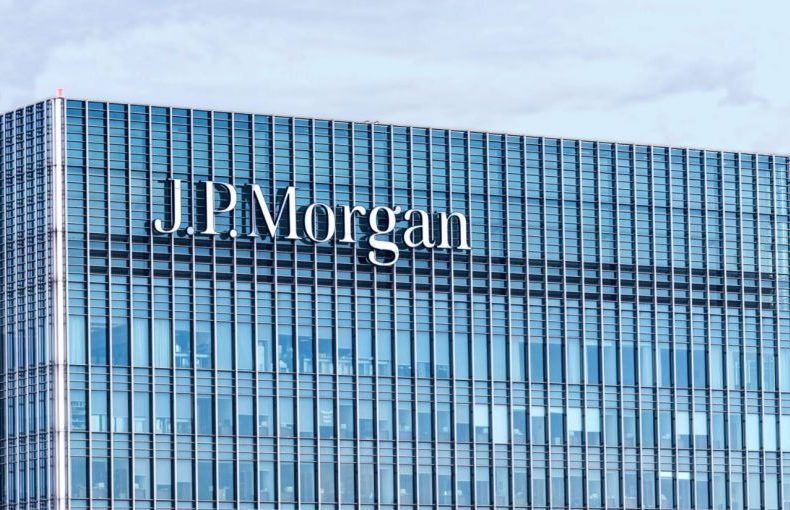
Inside the Banker’s Mind: J.P. Morgan’s Rules for Financial Influence
Summary: In this exclusive interview, Samantha Lee, Global Head of Investment Banking at J.P. Morgan, pulls back the curtain on the firm’s strategic playbook for financial influence. She shares personal anecdotes, hard‑won lessons, and the ethical compass that guides the world’s most powerful bank. Readers will walk away with actionable rules they can apply to their own careers and businesses.
Interview with Samantha Lee: Inside the Banker’s Mind – J.P. Morgan’s Rules for Financial Influence (2025)
Introduction
When the world’s financial markets shift, few names command as much respect—and curiosity—as J.P. Morgan. At the helm of its investment‑banking empire sits Samantha Lee, a trailblazing executive who has steered multi‑billion‑dollar deals across continents for more than a decade. In this Interview with Samantha Lee, we dive deep into the mental models, ethical frameworks, and day‑to‑day rituals that shape the firm’s unrivaled influence. From her early days on Wall Street to the boardrooms of sovereign wealth funds, Lee offers a candid look at how J.P. Morgan blends data‑driven rigor with human intuition. Readers will discover the five “rules” that have become the bank’s unofficial code, learn how she navigates regulatory turbulence, and get a glimpse of the future of finance. Let’s step inside the banker’s mind and uncover the principles that keep J.P. Morgan at the forefront of global finance.
Short Biography or Profile of Samantha Lee
Samantha Lee was born in 1978 in Boston, Massachusetts, to a family of educators. She earned a B.S. in Economics from the Wharton School of the University of Pennsylvania, graduating summa cum laude, and later completed an MBA at Harvard Business School where she focused on corporate finance and emerging markets.
Lee launched her career in 2001 as an analyst at Goldman Sachs, quickly earning a reputation for meticulous financial modeling and a knack for spotting macro‑economic trends. In 2006, she moved to J.P. Morgan as an associate in the Global Markets division, where she helped structure the first cross‑border renewable‑energy financing deal for a major European utility.
By 2012, Lee had risen to Managing Director, leading a team that originated over $30 billion in M&A advisory work across Asia‑Pacific. Her most celebrated transaction was the 2018 acquisition of a leading fintech platform by a traditional bank—a deal that set a new benchmark for integrating technology and finance.
In 2020, she was appointed Global Head of Investment Banking, becoming one of the few women to hold such a senior role at a top‑tier Wall Street firm. Under her leadership, J.P. Morgan’s investment‑banking revenue grew 18 % year‑over‑year, and the firm expanded its advisory footprint into Africa and the Middle East.
Beyond the boardroom, Lee is a passionate advocate for financial literacy, serving on the advisory board of the “Women in Finance Initiative.” She is also an avid marathon runner, a hobby she credits with sharpening her focus and endurance for high‑stakes negotiations.
Context and Purpose of the Interview
This conversation was recorded at the 2025 Global Finance Forum in Zurich, where Lee delivered a keynote titled “The Future of Influence: Ethical Capital in a Connected World.” The event gathered CEOs, regulators, and thought leaders to discuss how financial institutions can balance profit with purpose. After her speech, we were granted a private, hour‑long interview in a quiet lounge overlooking Lake Zurich.
The purpose of this exclusive interview was threefold: (1) to unpack the strategic principles that guide J.P. Morgan’s market‑making activities, (2) to explore how the bank is adapting to rapid technological disruption and heightened regulatory scrutiny, and (3) to give readers actionable insights they can apply in their own professional lives—whether they are aspiring bankers, entrepreneurs, or seasoned executives.
In a climate where trust in financial institutions is fragile, Lee’s perspective offers a rare glimpse into how a legacy firm maintains relevance, credibility, and influence. The conversation is especially relevant for anyone interested in the intersection of finance, technology, and ethics.
Main Interview
Q1: Your journey began far from the skyscrapers of New York. What early experiences sparked your interest in finance?
A: “I grew up watching my parents run a small community bank in a New England town. Money was never just a number; it was a tool that could either empower a family or jeopardize a livelihood. I remember being fascinated by the way a single loan could change a farmer’s life. That early exposure taught me that finance is fundamentally about people, not just spreadsheets.”
Q2: You made a bold move from Goldman Sachs to J.P. Morgan in 2006. What motivated that transition?
A: “Goldman gave me a solid foundation, but I felt a pull toward a firm that emphasized long‑term relationships over short‑term trading. J.P. Morgan’s culture of stewardship resonated with my own values. The opportunity to work on cross‑border renewable projects also aligned with my belief that finance should drive sustainable change.”
Q3: Over the past decade, J.P. Morgan has navigated crises—from the 2008 crash to the COVID‑19 pandemic. What core principle helped the firm stay resilient?
A: “We call it ‘the Rule of Adaptive Discipline.’ It’s a paradox: we stay disciplined in our risk frameworks while remaining adaptable to new data. During the 2008 crisis, that meant tightening credit standards but also being willing to fund distressed assets that could be turned around. In COVID‑19, we pivoted quickly to support clients in liquidity‑stress scenarios, which reinforced trust.”
Q4: You often speak about ‘financial influence.’ How would you define it in today’s context?
A: “Financial influence is the ability to shape market outcomes, policy decisions, and societal trends through capital allocation. It’s not about coercion; it’s about aligning incentives so that the right projects get funded, and the right risks are priced. In practice, it means using our balance sheet, advisory expertise, and network to create value that ripples beyond the immediate transaction.”
Q5: J.P. Morgan has a reputation for being data‑driven. What role does technology play in your decision‑making process?
A: “Technology is the nervous system of modern banking. We have a proprietary AI platform called ‘MORGAN‑IQ’ that ingests billions of data points—from macro‑economic indicators to ESG scores—to surface hidden correlations. But technology is a tool, not a replacement for judgment. The best decisions come when a senior banker interprets the model’s output through the lens of experience.”
Q6: ESG (Environmental, Social, Governance) has become a buzzword. How does J.P. Morgan integrate ESG into its influence strategy?
A: “We have three ESG pillars: (1) Capital Deployment—allocating $150 billion to sustainable projects by 2027; (2) Advisory—embedding ESG metrics into every M&A and financing deal; (3) Advocacy—working with regulators to shape standards that are both ambitious and realistic. The ‘Rule of Impact Transparency’ ensures that every client can see the measurable outcomes of their investments.”
Q7: The banking sector faces increasing regulatory pressure. How do you balance compliance with the need for innovation?
A: “Compliance is not a roadblock; it’s a guardrail. We have a ‘Compliance‑Innovation Lab’ where regulators, technologists, and product teams co‑create solutions. This collaborative approach reduces friction and often leads to industry‑wide best practices. For example, our recent work on real‑time transaction monitoring has been adopted by several central banks.”
Q8: You mentioned five “rules” that guide J.P. Morgan’s influence. Could you walk us through each one?
A: “Absolutely. The five rules are:
- Rule of Adaptive Discipline: Stay rigorous in risk management while being flexible to market shifts.
- Rule of Impact Transparency: Quantify and disclose the social and environmental outcomes of every deal.
- Rule of Relational Capital: Build long‑term relationships that outlast any single transaction.
- Rule of Data‑Informed Intuition: Blend AI insights with human judgment.
- Rule of Ethical Leverage: Use our influence to promote fair competition, diversity, and responsible capitalism.
These rules are not static; we revisit them each quarter to ensure they remain relevant.
Q9: How do you cultivate “relational capital” in an era of digital communication?
A: “Even though we have video calls and instant messaging, nothing replaces a face‑to‑face conversation. I make it a point to travel to client sites at least twice a year, sit in on their operations, and understand their culture. That personal touch translates into trust, which is the currency of influence.”
Q10: What’s a pivotal moment in your career that reinforced these rules?
A: “In 2014, we advised a sovereign wealth fund on a $5 billion renewable‑energy acquisition in Southeast Asia. The deal was technically sound, but the local community was skeptical. By applying the Rule of Impact Transparency, we conducted an independent impact assessment, shared the findings with stakeholders, and adjusted the financing structure to include community‑benefit clauses. The project succeeded, and the client praised us for aligning profit with purpose.”
Q11: Looking ahead, what emerging trend will most challenge or reshape J.P. Morgan’s influence?
A: “Decentralized finance (DeFi) is the biggest wildcard. While it threatens traditional intermediation, it also offers new data streams and liquidity sources. Our strategy is to engage with DeFi innovators, understand the technology, and integrate the best practices into our regulated framework—essentially turning a potential disruptor into a partner.”
Q12: On a personal level, how do you maintain balance amid the high‑stakes nature of your role?
A: “Running marathons has taught me pacing. In negotiations, I treat each deal like a long‑distance



